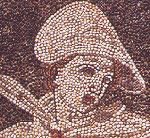A professor argues that technical writers are the future of American literature. Utah Valley State College English professor Scott Hatch says that the great American literature of the early 20th century was penned by journalists such as Ernest Hemingway, but in the future it is the technical writers who have the best training to be novelists.As you may know, I used to be a technical writer. Can't say that I loved it, but it was a good job for me in a couple respects. One, it made me learn to produce words even when I didn't want to. Two, it instilled excellent editing skills. And three, it made me say to myself, "Oh, look. It's a writer looking back at me in the mirror. Hey, that's really what I do for a living! Cool!"
(Four, it also made me much more likely to write things in ordered lists, a habit I'm still trying to break.)
Anyway, I think the professor may have a point, but I would disagree with his reasoning. The main reason, IMNSHO, is that real Literature and Creative Writing programs in most influential American universities were long ago murdered, cremated, and put away in ancient crypts to be treated as frightening relics of "The Old Establishment". These programs have mostly been replaced by so-called Critical (or Gender) Theory with its relativist yet at the same time dogmatic cultural ethos (meaning anything goes as long as it is anti-white, anti-male, and anti-corporation) and its non-existent writing standards.
Though neither Technical Writing nor modern Literature courses have anything to do with literature, at least Technical Writing has the distinction of teaching its graduates to actually write and to think intelligently and productively about what they're reading. How revolutionary.



3 comments:
"The main reason, IMNSHO, is that real Literature and Creative Writing programs in most influential American universities were long ago murdered, cremated, and put away in ancient crypts to be treated as frightening relics of "The Old Establishment". These programs have mostly been replaced by so-called Critical (or Gender) Theory with its relativist yet at the same time dogmatic cultural ethos (meaning anything goes as long as it is anti-white, anti-male, and anti-corporation) and its non-existent writing standards."
(Oops! The quoting got sent on before I added my comments...) Part of it too is the inbred, even incestuous character of most creative writing programs in the establishment. An enjoyable attack on that is B.R. Myers' A Reader's Manifesto: An Attack on the Growing Pretentiousness in American Literary Prose. (This appeared originally in The Atlantic and was expanded into a book that includes his response to critics--a sorry sundry lot they were, too.) The graduates of these programs become the judges of the next generation of literary prize-winners, and they focus on "writerly writing" to the exclusion of pretty much all else. Myers focuses on five big names, Don DeLillo, Annie Proulx, Paul Auster, Cormac MacCarthy, and David Guterson, and critiques them by going through the very passages that favorable reviewers praise as masterful prose and showing how scanty their merits really are. (I've read enough Auster and Proulx to say it's a fair cop, too.)
Though the best short description of the ills of creative writing programs was a quip in Generation Ecch! The Backlash Starts Here (a wonderfully vicious and sometimes witty little hatchet-job) that went something like: Creative writing programs have two basic principles, "Don't write a story in which the main character dies," and "Only write about what you know." If only their graduates would heed the second piece of advice but not the first, American literature would be in much better shape.
Toiler: Thanks for the post.
Adrian: Thanks for adding a book to my reading list. :-)
Thanks, Adrian, for the book tips. I'm looking forward to reading Myer's manifesto.
After reading this post of mine again, though, I notice that I wasn't entirely spot on. Critical (Gender/Race) Theory has been, I think, a much bigger force in Literature than in Creative Writing.
Creative Writing has its own problems, in addition to being influenced by Critical Theory. (After all, many Creative Writing students are also English majors.)
I'm reminded of another provocative, critical book that I read by John Ellis called Literature Lost, in which he makes a case -- a weak one, I'm afraid -- that the only way to save Literature from its politically correct torpor would be for Creative Writing departments to take it over. Doubtful.
Post a Comment